Are you facing a situation that requires you to take legal action? Writing a letter to notify the concerned parties can be an essential first step in resolving disputes effectively. A well-crafted letter not only communicates your intentions clearly but also sets the tone for further negotiations or legal proceedings. If you're interested in learning how to create a compelling legal action notification letter, read on for some helpful templates and tips!
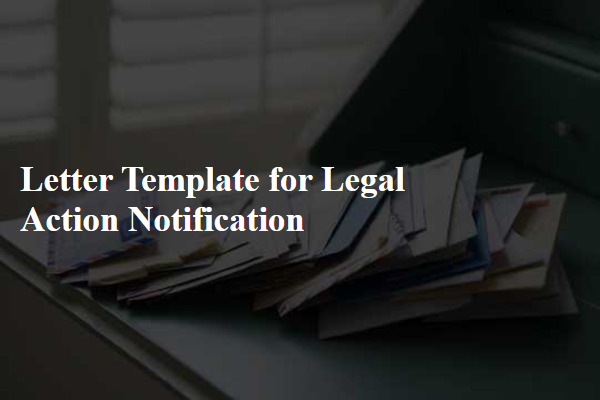
Recipient Information
Recipient Information encompasses all essential details about the person or entity involved in a legal matter, including full name, address, and contact number. This information often includes the recipient's title (e.g., Mr., Ms., LLC) and specific street address, ensuring accurate delivery of legal documents. Additionally, city and state must be noted for jurisdictional clarity. Postal codes provide precise location identification. If applicable, listing related entities (e.g., business name) and their registration information can further clarify the context, especially in corporate legal actions. Proper Recipient Information is crucial in adhering to legal protocols and ensuring due process.
Legal Basis and Grounds
Legal action notifications, emphasizing the required legal basis and grounds, often involve detailed references to relevant laws and statutes. Typically, such notifications cite specific legal codes, such as the Civil Procedure Code or specific statutes relevant to the case at hand. Key elements include the identification of the parties involved, such as the claimant (plaintiff) and the respondent (defendant), and the specific allegations that form the basis of the complaint. For instance, an unfair business practice could reference the Unfair Trade Practices Act. It is vital to outline the factual background that led to the dispute, including dates of incidents, locations, and any pertinent contracts or agreements that may be involved. This structured approach aims to provide clarity and establish a solid framework for the impending legal actions.
Specific Claims or Violations
A legal action notification regarding specific claims or violations must clearly outline the issues at hand. Such documents typically reference pertinent laws, regulations, or statutes relevant to the case. Claimants may cite specific incidents--like breach of contract, negligence, or violation of consumer rights--detailing occurrences such as date (e.g., April 15, 2023), location (e.g., New York City), and involved parties (names of individuals or companies). Evidence supporting the claims, including documents, emails, or witness statements, should be mentioned to establish validity. The notification often includes a demand for remediation or compensation, specifying amounts or actions to be taken by the recipient to rectify the situation. Furthermore, a deadline for response may be given, often ranging from 10 to 30 days, to encourage prompt action. Legal counsel may be referenced to strengthen the seriousness of the claims being made.
Required Action or Compliance
Legal action notification necessitates clear communication regarding required action or compliance with established legal standards. Entities such as corporations or individuals, under the jurisdiction of relevant laws, may receive formal notices highlighting specific obligations under contracts or statutory provisions. Prior legal precedents, like the 2016 Supreme Court ruling on compliance standards, emphasize the importance of timely response, often within a stipulated timeframe of 30 days. Noncompliance can lead to significant consequences, including financial penalties or further legal proceedings initiated in civil court, thereby underscoring the necessity of adherence to outlined requirements.
Deadlines and Consequences
Legal action notification serves as a crucial formal document outlining impending deadlines and potential consequences for non-compliance. Affected parties, such as individuals or organizations, must be clearly identified, often including their legal names and addresses. Specific deadlines, often set within statutory limits (e.g., 30 days from receipt of the notice), are outlined, highlighting critical timelines for responses or corrective actions. Consequences may involve legal repercussions, such as lawsuits or financial penalties, emphasizing the seriousness of the situation. Furthermore, applicable laws or regulations, such as the Fair Debt Collection Practices Act (FDCPA) governing debt recovery, may also be referenced to provide legal context and support the urgency of compliance. The tone typically remains formal, underscoring the importance of adhering to the stated timelines to avoid further legal complications.

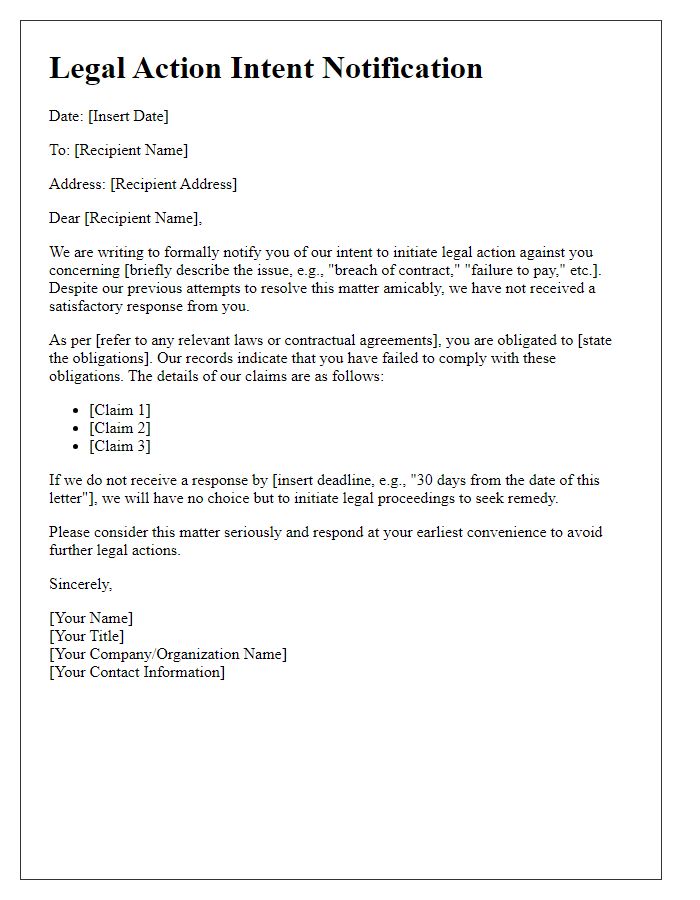
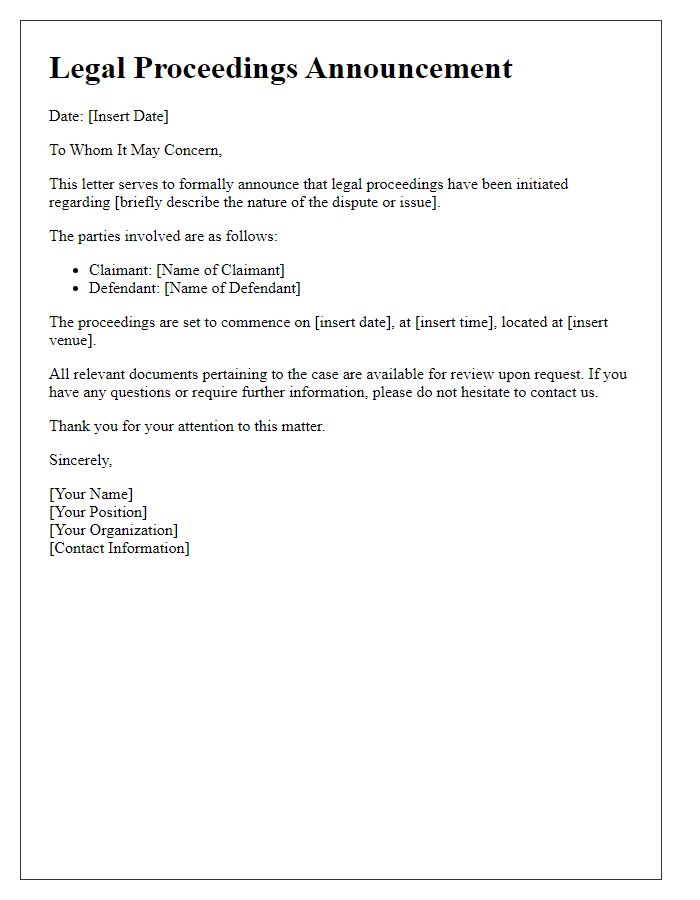
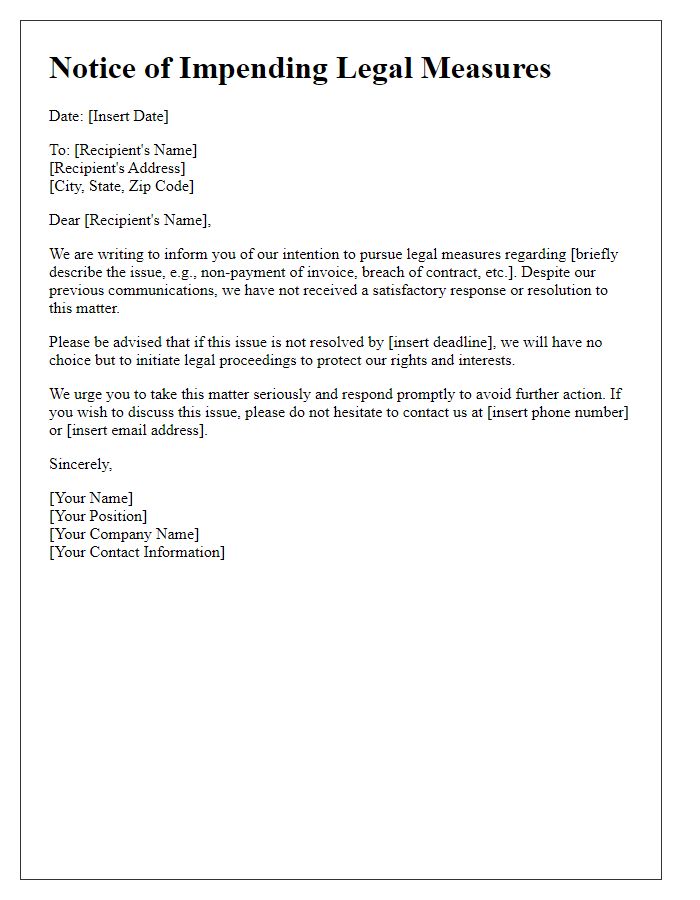
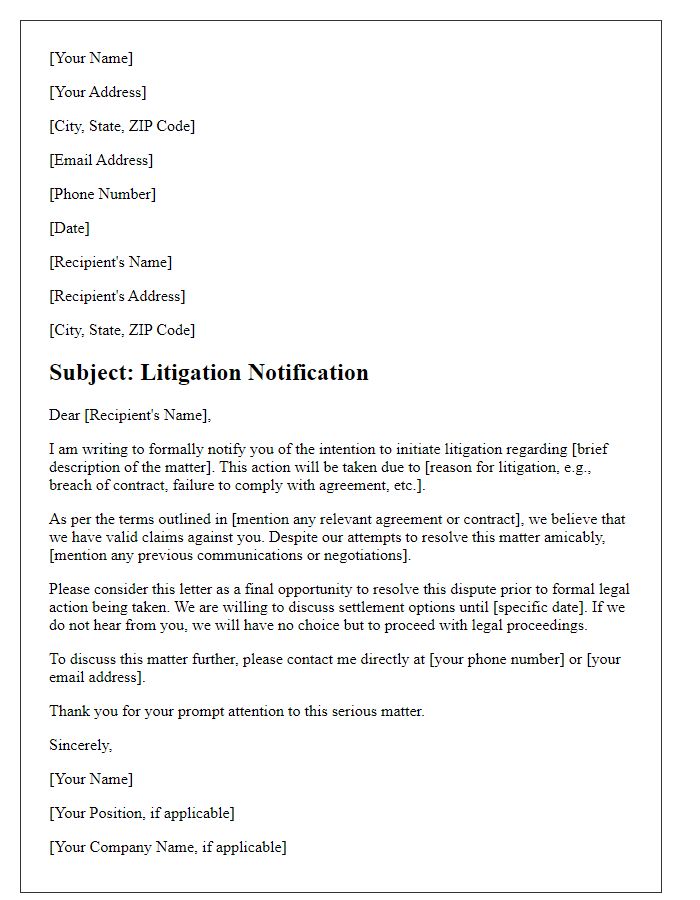
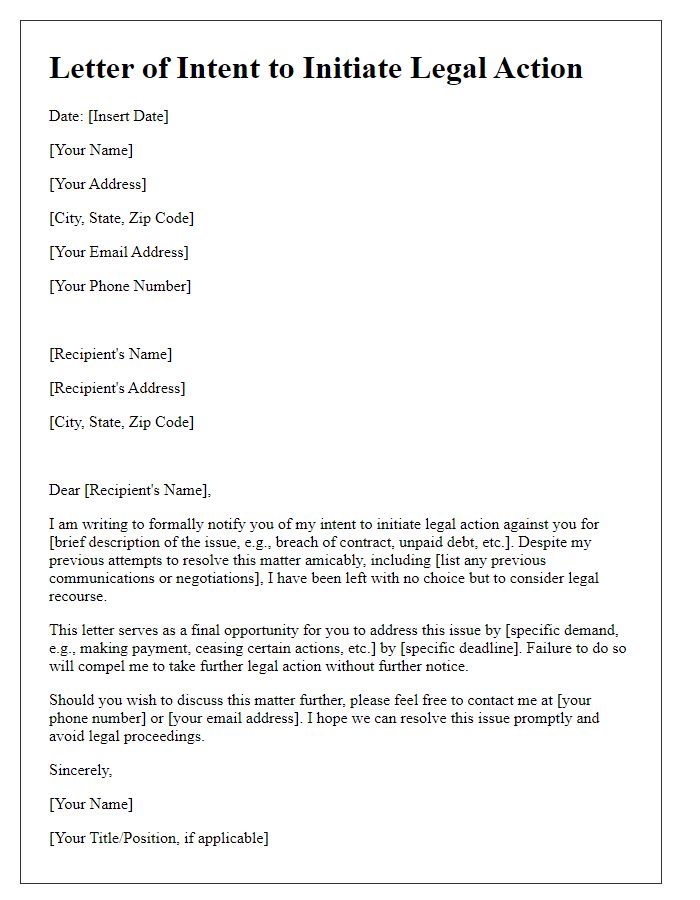
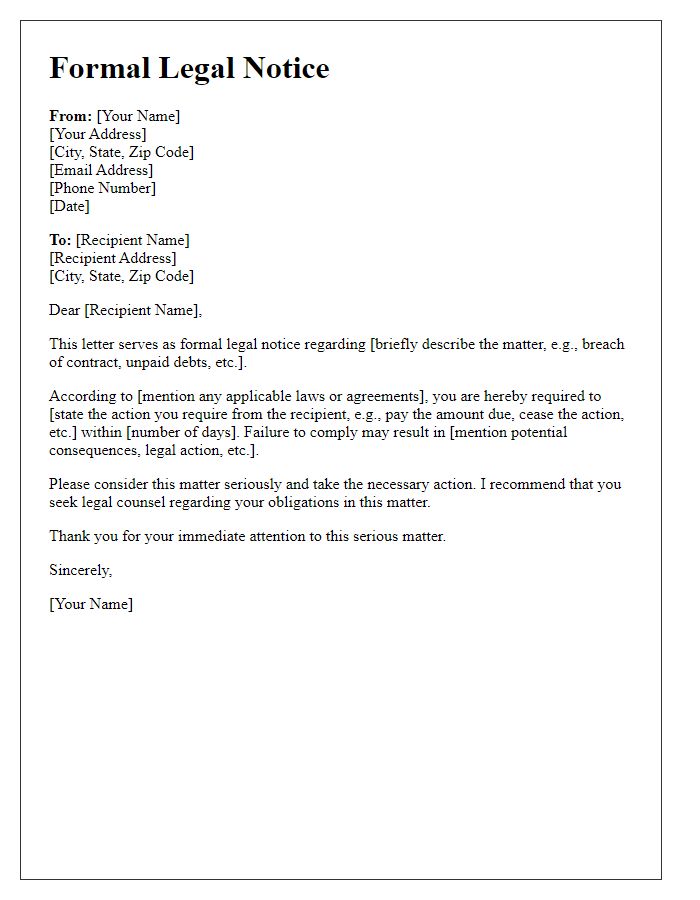
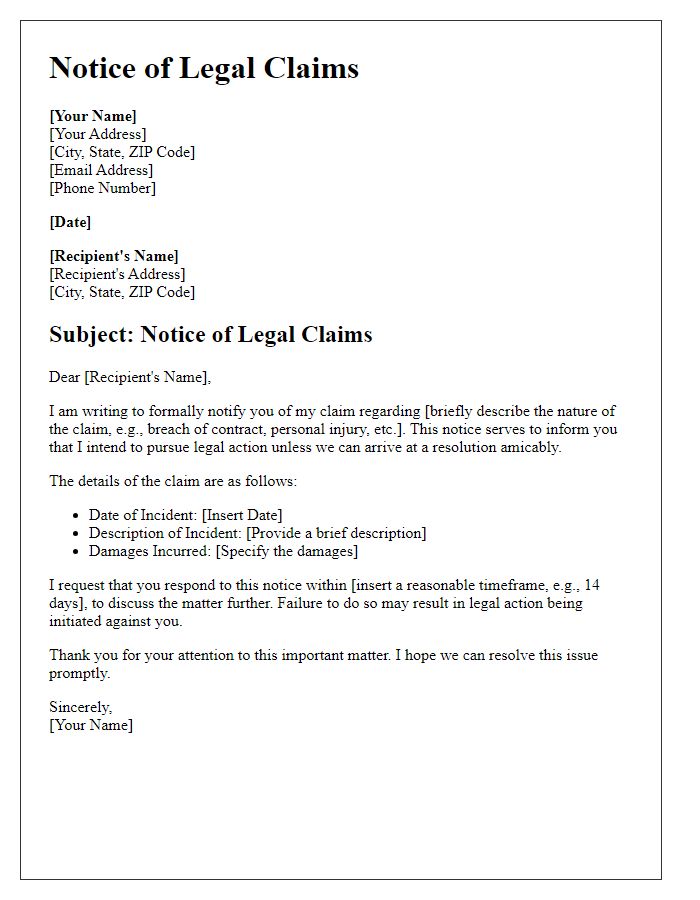
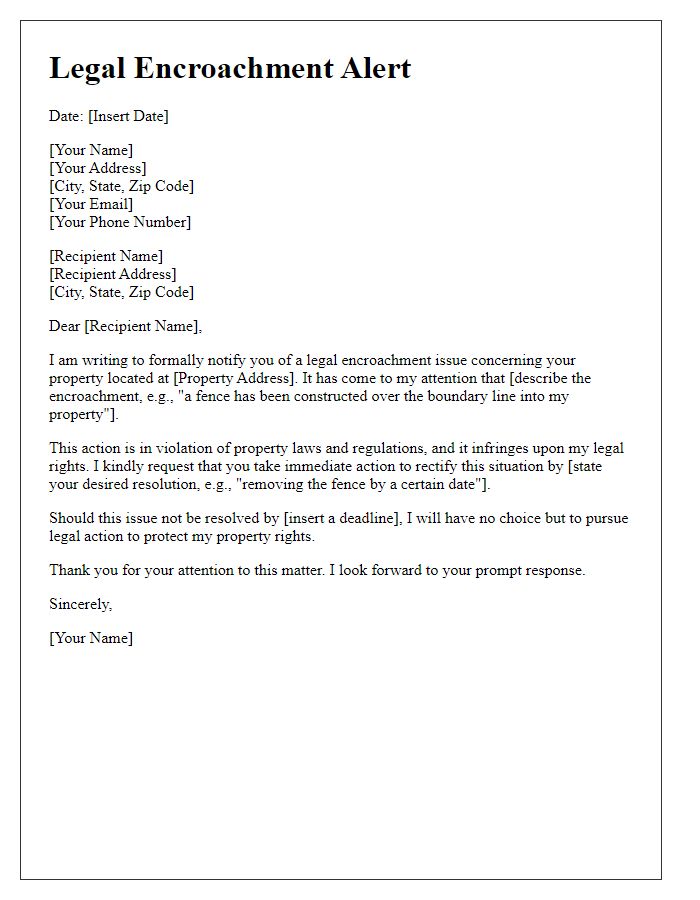
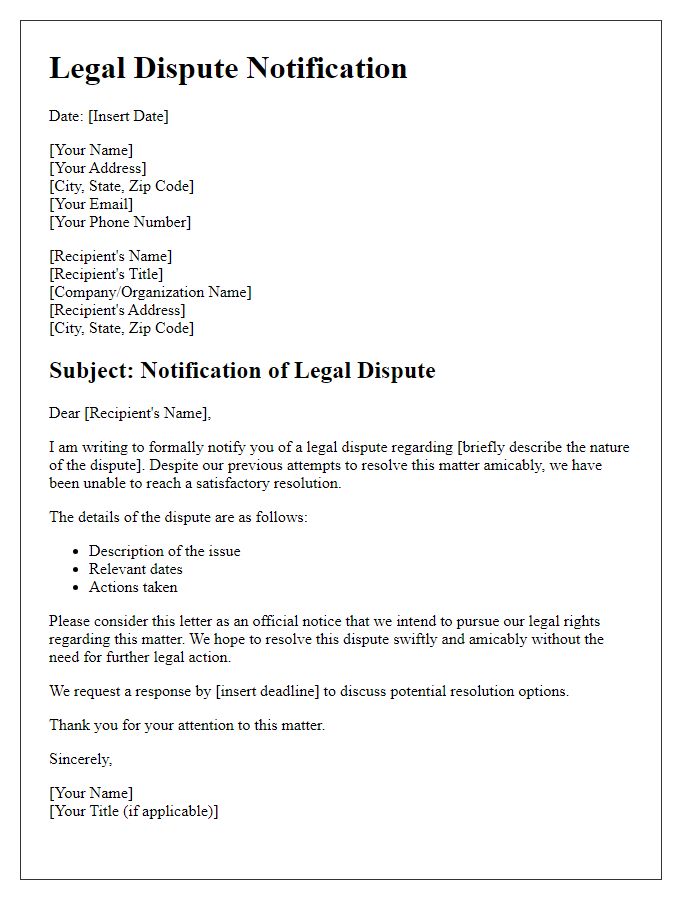
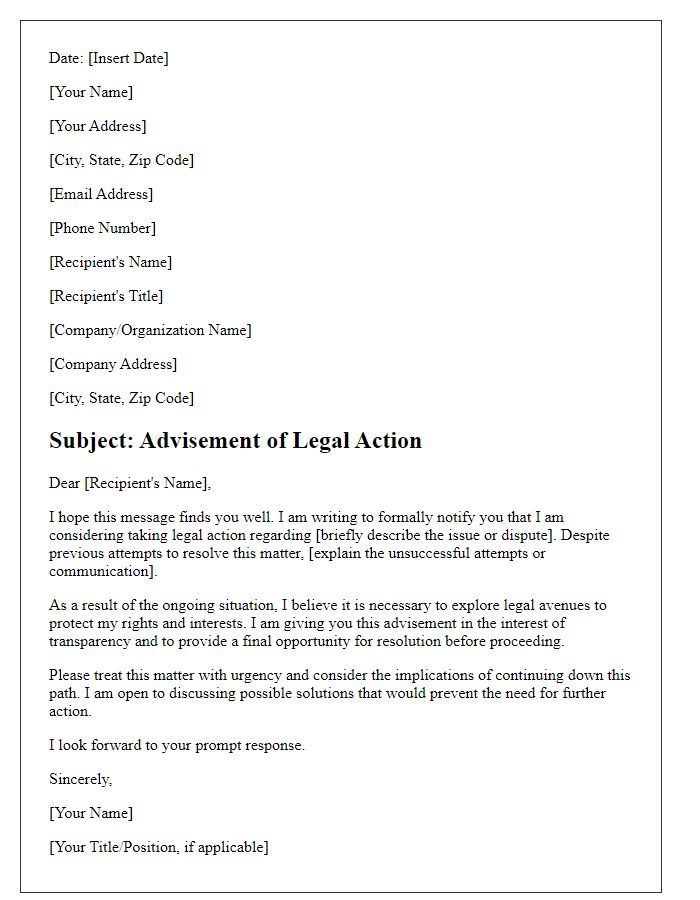


Comments